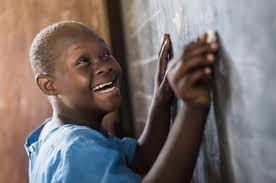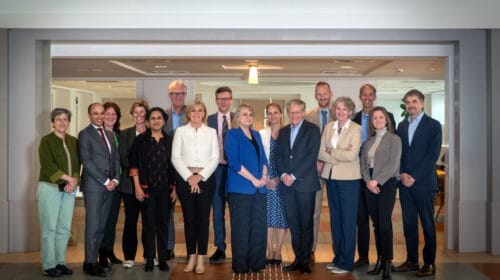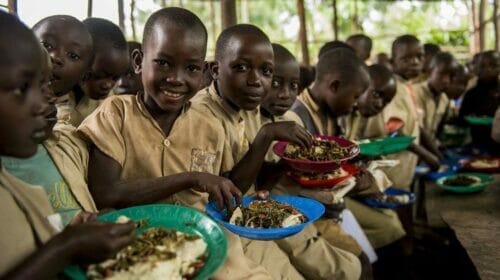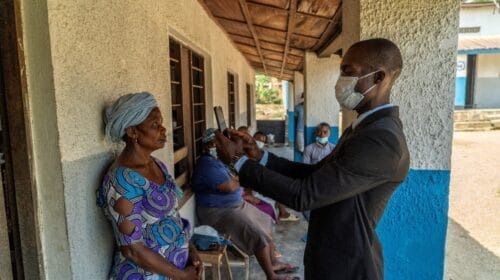How Nigeria’s ‘special needs’ population continue to live a life of unrealised aspirations
In a recent interview with host of #WithChude and founder of human flourishing company, Joy, Inc. Chude Jideonwo, popular Nigerian singer/songwriter and music producer Cobhams Asuquo, the multi-talented visually impaired artist revealed that ignorance was at the root of his success.
“I was growing up and was an ignorant blind person,” he said, “It is one of the few instances where ignorance is really bliss because if I understood what it meant growing up in Nigeria – in the world, to be a blind person and the limitations that people stack over you then maybe I wouldn’t have done half the things I do now.”
Cobhams, who recently turned 40, has been in the music business for over a decade – churning out success stories like Asa’s international hit self-titled first studio album Asa among a long list of successes. There is no doubt whatsoever therefore that Mr Asuquo’s blissful ignorance has worked in his favour. But what’s the price of ignorance – the kind he spoke about, to 11-year-old Sadiq, born blind in Kano to a family of 10 in a house whose annual income struggles to reach $1000 per annum.
Or Nina, a 13-year-old Down syndrome warrior who lives with her single mum in Ojuelegba going back and forth from their one-room flat to her mum’s stall in Yaba market. That Ping-Pong life is all she knows because her mother can barely afford their care, and school is merely an idea distant from her mum’s mind as thought of the expanse of the known universe.
When Sadiq’s mother found out she was pregnant with him, her biggest worry was how unprepared she was for an 8th child. It was not the first time she will find herself in such predicament. From her first child, she has never had a say in when she will get pregnant.
Minutes after her delivery – all done at home with the help of her long-term friend and local midwife Zuwaira, her fear took on a new shape. The wiggling baby they held had a glazed eye that spoke its story without uttering a word – he is blind, always had been and always will be.
Nina’s mother’s choice to move to Lagos was made the minute her then-boyfriend discovered she was with a child and turned overnight from a loving boyfriend to a nightmare roommate. He wanted her to abort the pregnancy, she was too afraid to; because she had seen relatives and friends right in their hometown of Benue state who faced complications after back alley abortions that left them barren.
He threw her out, and too ashamed to seek refuge at her parents,’ she packed a bag and headed to Lagos. She only had 7000 naira and a dream of a better life for her and her soon-to-be-birthed child. Part of that dream shattered when she held her baby after a difficult labour that lasted 2 days. It was unmistakable that her child, with her distinct facial feature that resembled neither her nor her ex, is different. She will learn just how different in the coming years.
On a regular day, Sadiq wakes up, eats reheated leftovers from the previous night and scampers off with his immediate older brother to play with friends. By noon, himself and his brother station themselves at the junction by the town’s central mosque and make their daily bread by begging passersby.
His mother worries about his future but feels too defeated to do anything about it. “The closest government school for kids like him is in the city, the trip to and back alone cost 700 Naira,” she said in Hausa, “most times I don’t see that kind of money in months.”
She is grateful he is a reasonable child. Quick-witted and intelligent at just 11, Sadiq knows what he doesn’t have and focuses all his energies on what he does have – his hearing, sense of smell, touch and perception. One thing he desperately lacks is an ignorance of what society allows him, so he is tentative about dreams. Asked what do you really want? He replied simply, “Choco Pops.” A delicacy he tried once at a distant relative’s place a year ago.
Nina’s reality is much grimmer. Her mother, who said she heard from different people over the years that Nina won’t be alive for long anyway, is counting the days till the child passes away.
“People always said, “she won’t be alive for long anyway, don’t get too attached,” and I was angry at first,” she said, her exhaustion visible, “13 years later and I feel awful having to say this, I am honestly counting the days. For her sake. She isn’t living, she only has me because none of the kids her age wants to be friends. I don’t even think she knows what a friend is.”
Nina just follows her mother around, happy to do whatever her mother assigns her. Her face lights up each time her mother asks her to, ‘pass the cup’ or ‘get an item a customer’ needs. Otherwise she is in her own universe.
Millions of people living with disability in Nigeria can’t afford blissful ignorance because we have set up a society for the abled and only remember the disable when the need for a cautionary tale arises, “be grateful for all you have, think of all those without legs/eyes/speech.”
It will be a wonderful world if every disabled person can afford to live like nothing can stop them. Until then, we have a responsibility to make life easier for the disabled by curating inclusive spaces. Wheelchair accessible spaces is a good place to start.





